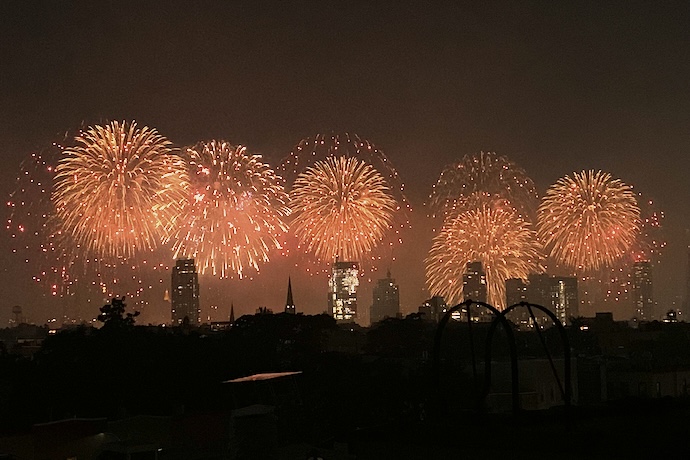Independence Day doesn’t tend to cause as much dissonance as Thanksgiving, as much confusion as Juneteenth, and isn’t as widely reviled as Columbus Day (aka Indigenous People’s Day).
Yet, while it “is not America’s birthday,” as Peter Laarman argued nearly a decade ago, Independence Day is every bit as apt as the holidays above to initiate—for better and certainly for worse—a discussion about what the American project actually is, what it was meant to be, and whose interests it was meant to serve. These are questions RD has sought to address over the years, questions that remain as relevant—again, for better and certainly for worse—as when we published our first piece in February of 2008.
As we approach another historic election, the editors have hand-picked a selection of July 4 pieces from the archives. So give them a read before you put the chicken on the grill or blow anything up. But however you choose to spend it, have a safe and happy holiday. – the eds
THE GREATEST SPEECH OF THE (19TH) CENTURY
As an antidote to celebrations of American Exceptionalism, religious studies scholar Jonathan Walton suggests Frederick Douglass’s landmark 1852 speech, “What to the Slave Is the Fourth of July?” In his speech, Walton writes, Douglass, “directs us back to the founding principles of this nation, even as he calls Americans to critically examine our own perverse dealings with one another as well as the world.” Read Walton’s reflection, then watch an excerpt of Douglass’s speech beautifully read by James Earl Jones.
THE TRAITOR CHAPLAIN WHO GAVE GOVERNMENT PRAYER TO AMERICA — A 4TH OF JULY CORRECTIVE
Continuing with the broken promises theme, Andrew Seidel tells the story of the prayer that preceded “the shot heard around the world” and the preacher who delivered it. According to Seidel, however, while the prayer is still being used to justify all manner of church-state violations, “we’ve only heard part of the story”—the part that omits the chaplain’s treason. It’s a tidy traditional bedtime story until “things just start getting juicy.” Learn more about Jacob Duché (including the pronunciation of his name) here.
AMERICAN CIVIL RELIGION IS DEAD, LONG LIVE AMERICAN CIVIL RELIGION
Finally, lamenting the notion that the Founders’ depravity leaves us with no way forward, Peter Laarman seeks to redefine the American project (but without succumbing to the July 4 tendency to be “jingoistically repellent beyond belief”). Laarman suggests that we “reinvent American civil religion in a way that fully acknowledges… the Founders’ ‘rejection of a role in the political body’ for African Americans—not to mention a wide range of other foul crimes against people of color, including the Europeans’ genocidal treatment of the First Nations.” Truth-telling without despair. Read the whole thing here.


